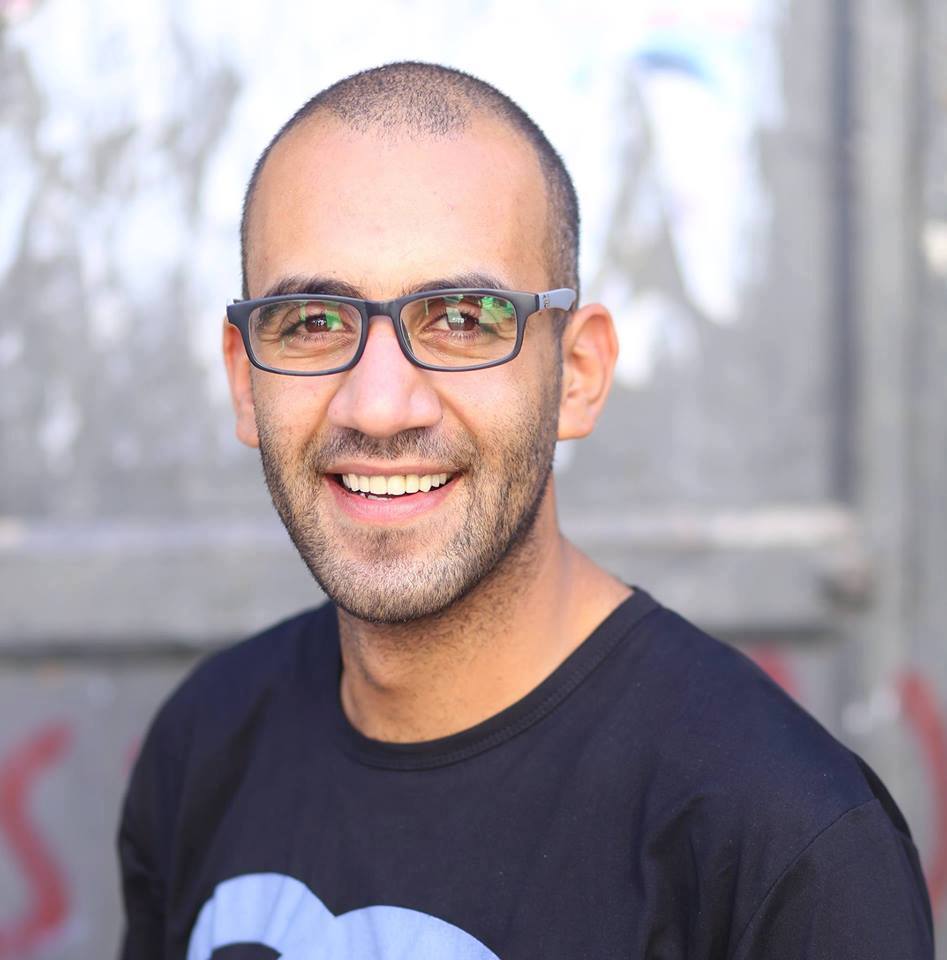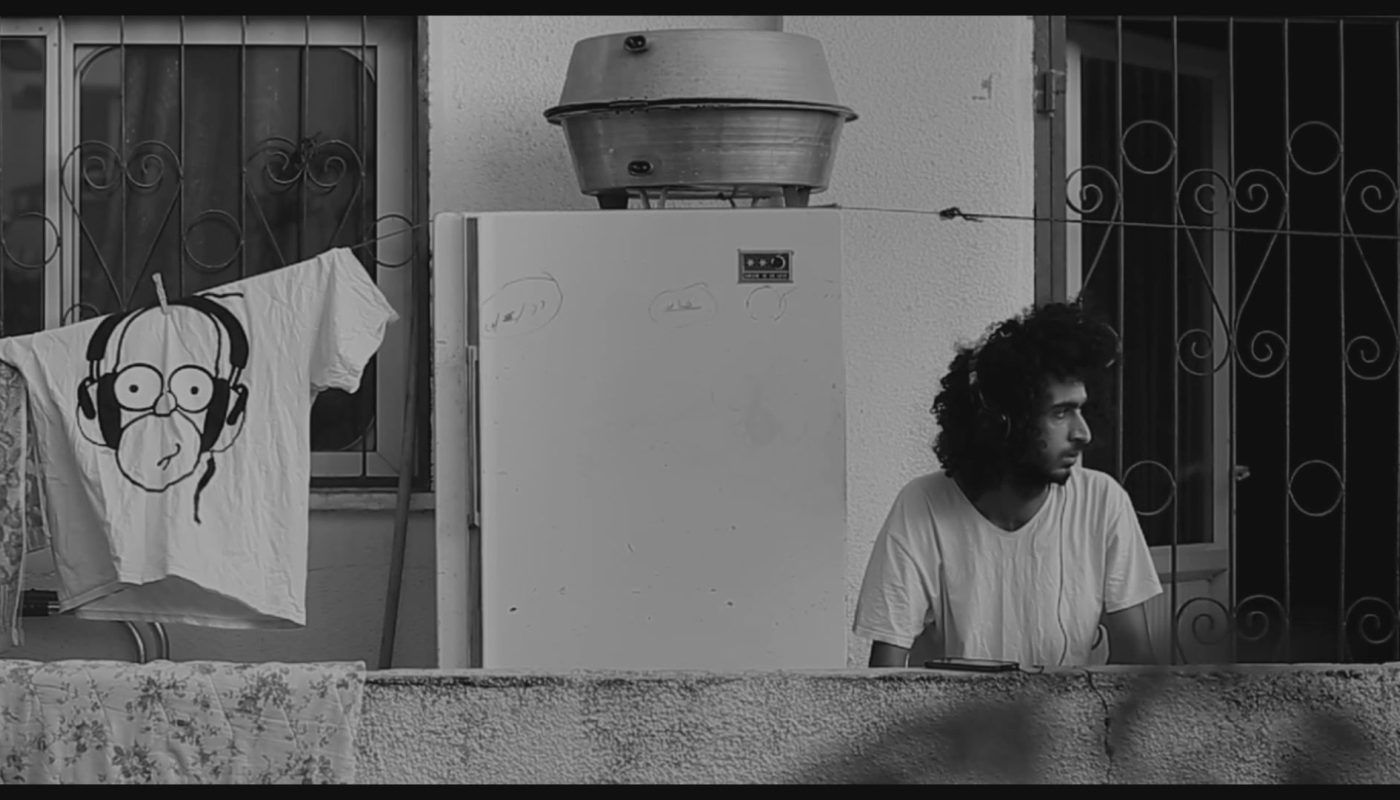

Wisam Al Jafari - Indestructible Power of the Palestinian Spirit
CineSud magazine author Sofia Piven writes about Wisam Al Jafari, a man who shows that faith, hope and endurance can move mountains.
Geplaatst op 14 juli 2019Despite the fact that summer is at its climax now, CineSud Magazine believes that it would be a great idea to remember some spring highlights from the sphere of filmmaking.There is no doubt that the most memorable event devoted to the movie art is Cannes Film Festival which took place in France from 14 to 25 May this year. So today we would like to introduce to you the winner of the Third Prize of the Cinéfondation Selection, the Palestinian director Wisam Al Jafari who tells us about his life in a refugee camp, the award-winning film Ambience, the imprisonment of the main character of this movie and the idea of filming a long documentary.
"The viewer goes on a journey through the alleys of the camp where he discovers the details of the locals' lives."
Life in a Palestinian refugee camp
Wisam Al Jafari was born in the Dheisheh Refugee Camp near Bethlehem (a Palestinian city located in the center of West Bank of the river Jordan). 71 year ago the director’s family has forcibly been resettled from a village called Deir Rafat, located in the south of Jerusalem. Therefore Wisam had no choice but to spend his childhood in the camp. He says: “I still live in the refugee camp. I am surrounded by about 15,000 people who live in a territory of less than one square kilometer. It is a place we all consider to be a temporary shelter until there is an opportunity to return to our homes.” Families from more than 55 Palestinian villages have left their houses, establishing other ways of life due to the current political reality and are now forced to live in extremely complicated conditions without any privacy.
News in Wisam’s camp spread faster than the speed of light. He tells CineSud Magazine that the dwellings of the refugees are situated so close to each other, that you can easily know what your neighbors are cooking and what is the subject of their discussion in the kitchen. It is a crowded area. However, there is some kind of intimacy and spirituality in this place, because people still hope to return. According to Wisam, Palestinians, particularly the young generation, face a great number of difficulties concerning their physical and emotional well-being, such as a lack of job opportunities, the state of frustration and so on. Nevertheless, all of them, guided by aspiration, have motivation and a powerful energy that forces them to realise their dreams from nothing.
Affiliation to the Palestinian ethnonational group has not only influenced Wisam’s philosophy of life, but also left a considerable imprint on his creativity. He is not the only person who expresses the daily routine of refugee camps in filmmaking but he endeavors to do it in a different way, trying to show all the challenges and problems young people have to deal with in order to fulfill their dreams and hopes.
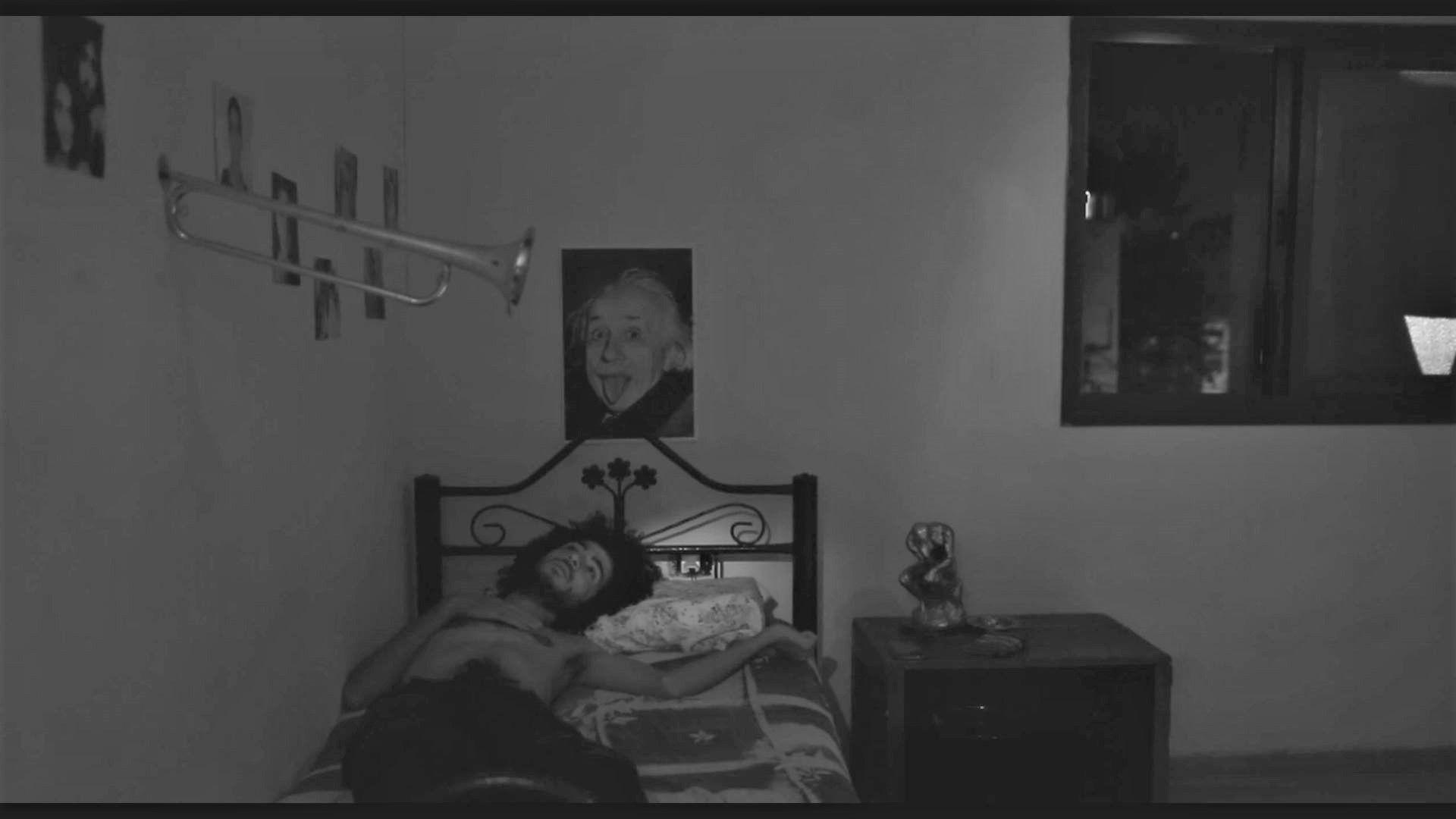
The main idea behind Ambience
Despite the fact that Wisam Al Jafari has the appropriate education to become a director (he obtained his BFA (Bachelor of Fine Arts) in filmmaking at Dar al-Kalima University), firstly he wanted to work as an assistant director, location manager, camera assistant and sound engineer, in order to understand the whole process of shooting the film from the inside. What is more, thanks to these jobs the director was able to save money for his life and for the production of his small projects without any external funding.
Wisam’s latest film Ambience, which is his second short fiction film and which he wrote and directed, was highly estimated at Cannes Film Festival 2019 and received approval all over the world. The idea behind the film is to show a usual day in the camp the director lives in. The film presents the camp as an intimate place capable of creating miracles in spite of many difficult circumstances. In addition to this, Ambience is a simple attempt to show the privacy lost in camps as the most basic human right. Wisam comments: “The viewer goes on a journey through the alleys of the camp where he discovers the details of the locals' lives. This settlement also introduces to us the world of young people, engaged in recording music, who seek opportunities for creativity and development under harsh conditions like lack of space, quietness, etc.” Ambience is a motivational film, especially for youngsters, as it proves that there are no obstacles if the person wants to find creative solutions or create artistic situations. Moreover, this film is a celebration of the camp and a victory of the culture of the poor, because they do not make up any excuses to justify their failures, they just act and, in the long run, achieve the desired result. For the foreign audience the film presents an absolutely different model of the young Palestinians compared to what the foreign viewer can see through various media. They do not succumb to the despair or depression and are able to embrace the difficulties and transform them to serve their projects.
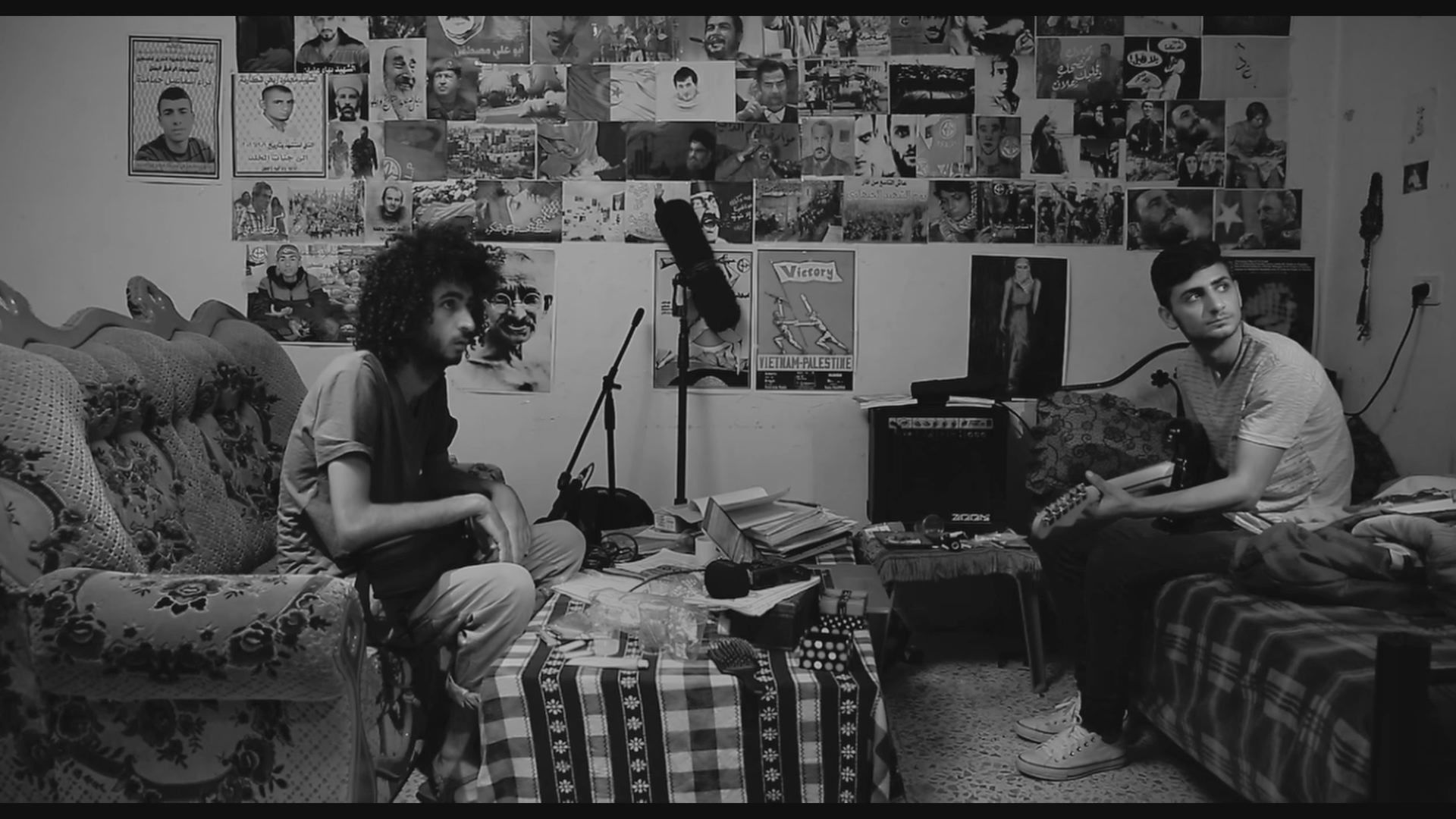
The cast of the film
Most of the actors in Ambience are not professional ones and it was their first experience in the world of filmmaking. The film's characters are the real people from the camp who live the story of the film every day. Wisam says: “Certainly there were performance experiments but there was a script which guided us in choosing the actors that best suited the written storyline.” The Palestinian filmmaker believes that it is not easy to be a director. However, in his point of view, if the person is convinced that he is capable of accomplishing the project and has the help and devotion of a great crew such as the one of Ambience, it is possible to achieve miracles. For instance, getting access to a place like Cannes.
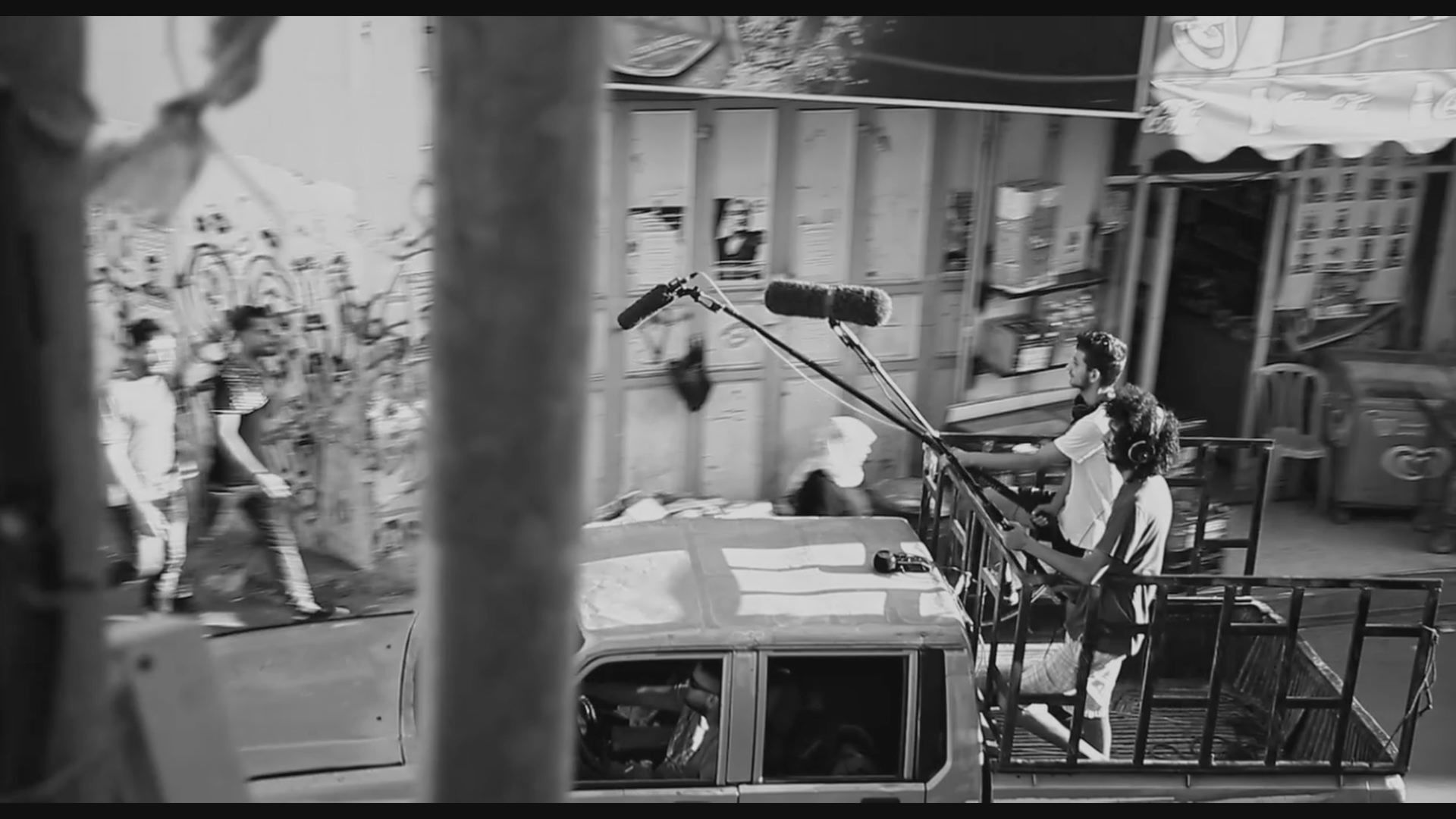
Imprisonment of Mohammad Al Khmour
The whole film crew was present at the Cannes Film Festival this year apart from one of Ambience's main actors, Mohammad Al Khmour. While standing on the red carpet Wisam was holding the poster “Freedom to Mohammad Al Khmour”, as a protest against his arrest. Mohammad is the representative of the Palestinian youth from the Dheisheh Refugee Camp and was arrested in September 2018, after Ambience was completed, under the pretext of administrative detention. Wisam comments: “Administrative detention is a procedure used by the Israeli occupation forces to detain Palestinian civilians without specific charges and without trial. This prevents the detainee and his lawyer from knowing the reasons for the detention, which, obviously, doesn’t help to develop an effective defense.” According to the director, the Israeli occupation forces exercise administrative detention by the means of detention orders ranging from one to six months, renewable without specifying the number of times of the renewals. Orders are issued on the basis of confidential information which the detainee or his lawyer are not entitled to access. Wisam believes that holding the image of Mohammad Al Khmour is the simplest thing that can be done as an act of solidarity with Mohammad because if the actor had not been in prison, he would have been celebrating the victory of the Third Prize of the Cinéfondation Selection at the Cannes Film Festival together with the rest of Ambience's crew. With regard to Cannes, Wisam Al Jafari says: “My life has not changed and will not change either. I was in a refugee camp and I returned to it in order to complete what I had started. So now I try to focus more on my future projects than on the success of my previous films.”
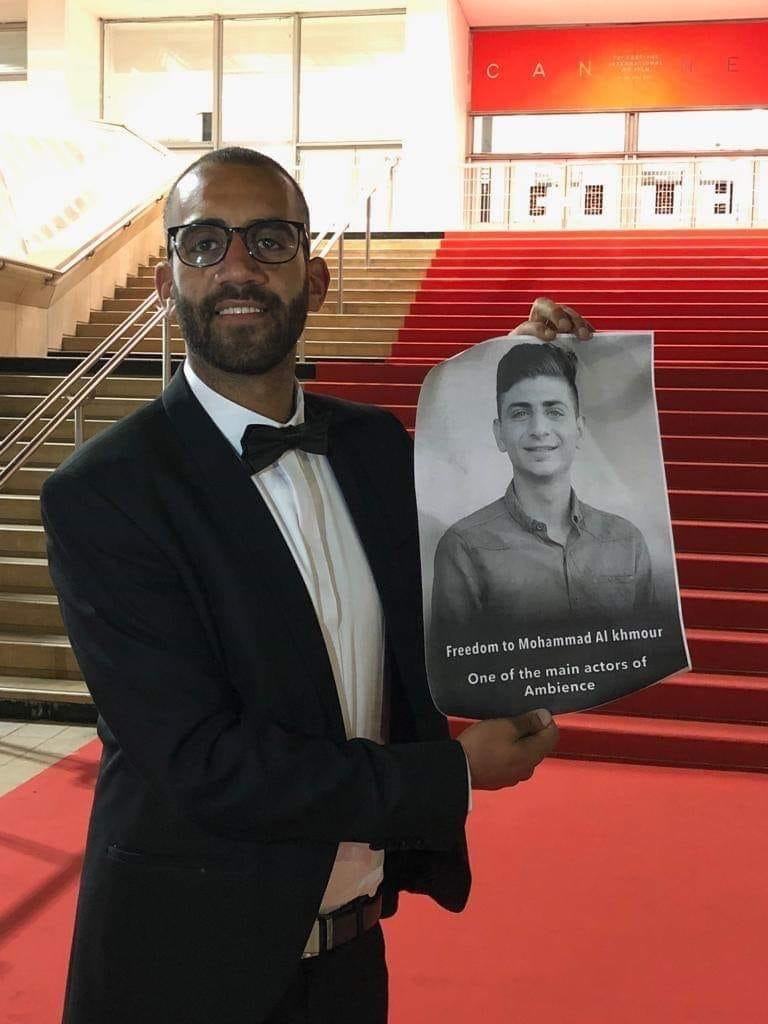
A fairly personal documentary film
As for his future plans, Wisam is going to work on two parallel lines. He has come up with an idea to write a script for his new feature film about a day of strike inside a Palestinian city. The second project is much grander in scale. The director started filming a long documentary on a fairly personal subject. Wisam is inspired by the story which began 9 years ago, when he met a man in the Israeli jail. The Palestinian director remembers: “He told me about his love story with another prisoner who was held in a women’s prison. One day they started to send each other letters and fell in love, even despite the fact that they had never seen each other before.” Wisam met this woman after her release 3 years ago. Realising that Wisam was familiar with her beloved, she started asking a large number of questions about him, about his life, how many cigarettes he smokes, what he likes and what he hates. Therefore, Wisam decided to make a film about this couple and their pure love. The director says: “I feel that my crew and I should become a mediator between these lovers or a window through which she can be a bit more related to him. Our film about this relationship is the only real evidence of the love story, it can relieve the suffering of the woman, while waiting for the release of her sweetheart. This film is about how love can survive despite all the difficulties.”
